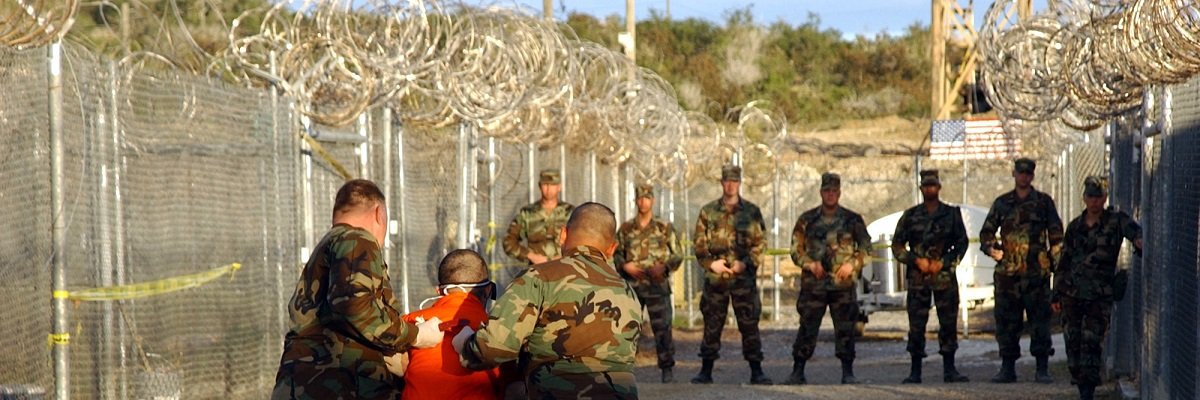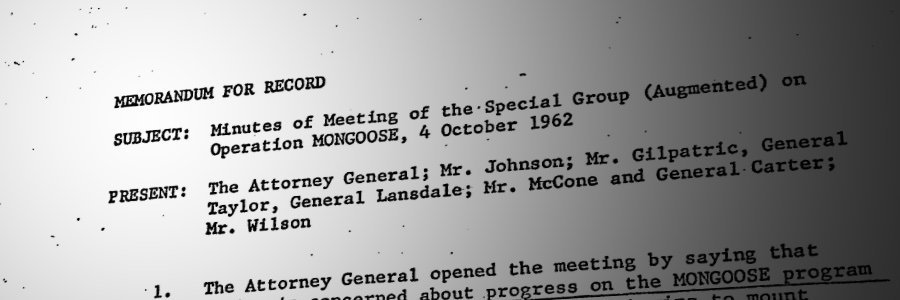For nearly five years, Miami Herald reporter Carol Rosenberg has been fighting to compel the Department of Defense to release documents about an expensive and “structurally unsound” facility built at Guantanamo Bay known as “Camp 7.”
Last October, Rosenberg and her lawyer turned to their last resort: a lawsuit against the agency.
“For more than four years, DOD has failed to conduct a reasonable search for the requested documents, to disclose the requested documents, or to provide an adequate legal basis for withholding them. It should be compelled to do so forthwith,” Chad Bowman, Rosenberg’s lawyer, wrote in the initial filing.
The existence of Camp 7 has been previously reported, and even publicly acknowledged by Navy officials. And the Defense Department has disclosed expenses for other secretive Guantanamo facilities, the lawsuit states.
But Rosenberg’s request for documents pertaining to the cost and operating expenses of Camp 7 has run a gauntlet of stalling tactics and denials.
Rosenberg first submitted her request in April 2009. It took more than a year for Defense Department officials to offer a substantial response, according to the lawsuit.
The agency located one document pertinent to Rosenberg’s request, officials indicated at the time, but withheld it in full because the document was classified, pertained to internal practices, and would violate the privacy of referenced individuals if released.
“The costs of all other facilities have been made public at Guantanamo without impeding the detention and interrogation mission, the privacy issue is applicable to individuals and surely a company or contractor was involved in this building and the facility’s existence has already been disclosed and described by VADM Walsh,” Rosenberg wrote in her appeal.
It took DoD three years to respond to the appeal with a denial. Its FOIA office affirmed that its Camp 7 document was classified and would violate personal privacy. Rosenberg contends that the government is actually withholding the document because of its potential to damage the public image of the Department of Defense: As she submitted in a recent motion, “But there is no FOIA exemption for governmental embarrassment.”
Below is a Q&A with Bowman, Rosenberg’s lawyer, regarding the ongoing lawsuit and the role of litigation in FOIA requests.
How did you become involved with Ms. Rosenberg’s case, and where does it currently stand?
The Department of Defense filed a motion for summary judgment on January 31. We responded on March 3. The DOD next has the chance to file a closing “reply” brief by this coming Tuesday (March 25), and then the court will consider the arguments.
How would you describe the crux of your argument, and the government’s response?
Ms. Rosenberg ‘s narrow FOIA request seeks three pieces of factual information about how taxpayer money was, and is, being spent on a crumbling high-value detainee “Camp 7” facility in Guantanamo Bay: the cost of building the facility, the identity of the builder, and the ongoing cost of operating it. Her argument, basically, is that there is no proper justification under FOIA to withhold this information, particularly where near-identical information has been released – including the replacement cost of Camp 7 as well as the construction costs, operating costs, and builders for other Guantanamo detention facilities. Governmental embarrassment is not a good enough reason.*
*DOD argues generally that the information is properly classified in light of national security concerns and that it only found one document containing this information, which it argues can also be withheld because the document includes DOD personnel names and reveals internal agency deliberations. We of course dispute all of these points.
Generally speaking, how and when should reporters consider filing suit when their FOIA requests are rejected?
Reporters should consider filing suit where they seek information of importance to the public and where the government appears to be withholding that information without a strong legal basis to do so. FOIA only serves its purpose of opening government activities to public scrutiny where requesters use the law and, when appropriate, challenge denials.
Have you litigated any FOIA cases that stand out to you, or which you find particularly interesting?
Ms. Rosenberg’s case stands out because what’s happening with the War on Terror prisoners held in Guantanamo is of such profound national importance, but is largely hidden from public view. As citizens we depend on people like Carol Rosenberg, and news organizations like The McClatchy Company’s Miami Herald and others, to fight for public access on our behalf – mostly journalistically, but also when necessary through the courts.
What (reasonable) changes would you like to see to federal FOIA laws and regulations?
On your question about changes to the law, I think that, especially for reporters trying to inform the public about newsworthy issues, the time delays under FOIA both administratively and in the courts can be maddening. (In this case, for example, Ms. Rosenberg first sought information in 2009.) The important purpose of the statute would be better realized with more incentives for quick responses – and more penalties for unreasonable delays.
On possible amendments to regulations, a number of agencies have not yet incorporated 2007 statutory changes recognizing a broad definition of the news media for purposes of fee waivers. As a result, specialized publishers, bloggers, and freelance writers sometimes face challenges to being granted news media status despite clearly qualifying for fee waivers. Updating agency regulations would certainly help.
Image via Wikimedia Commons




